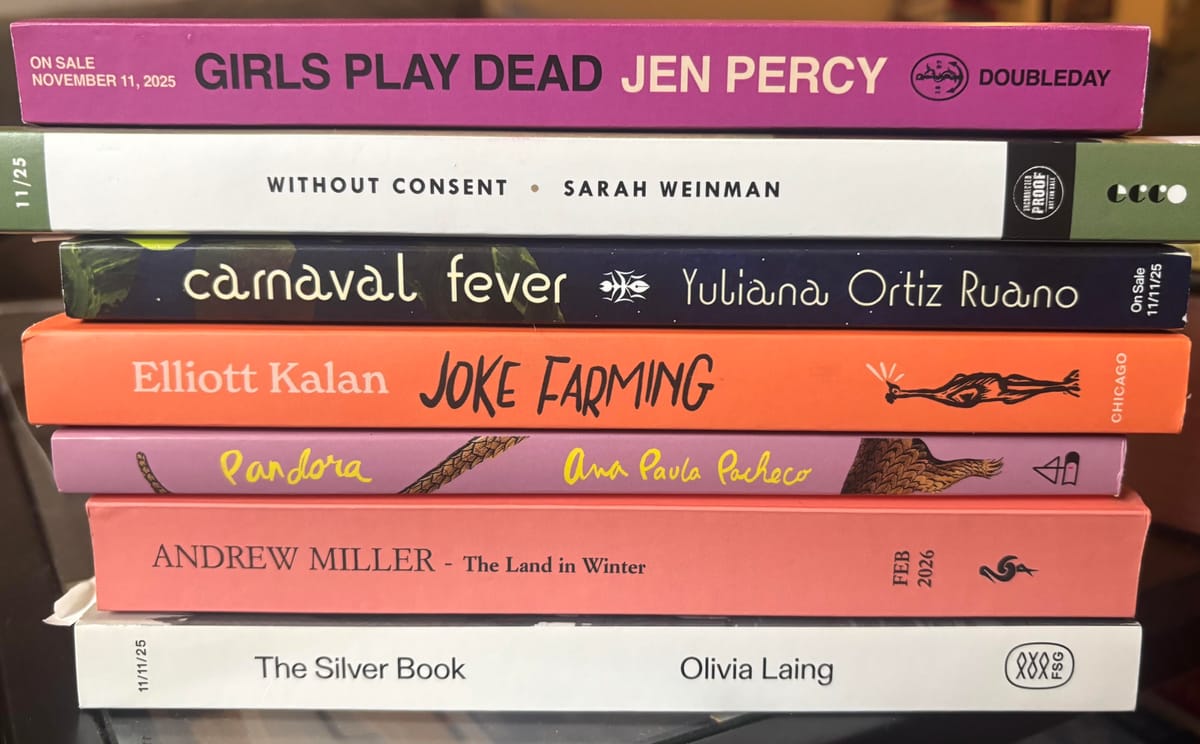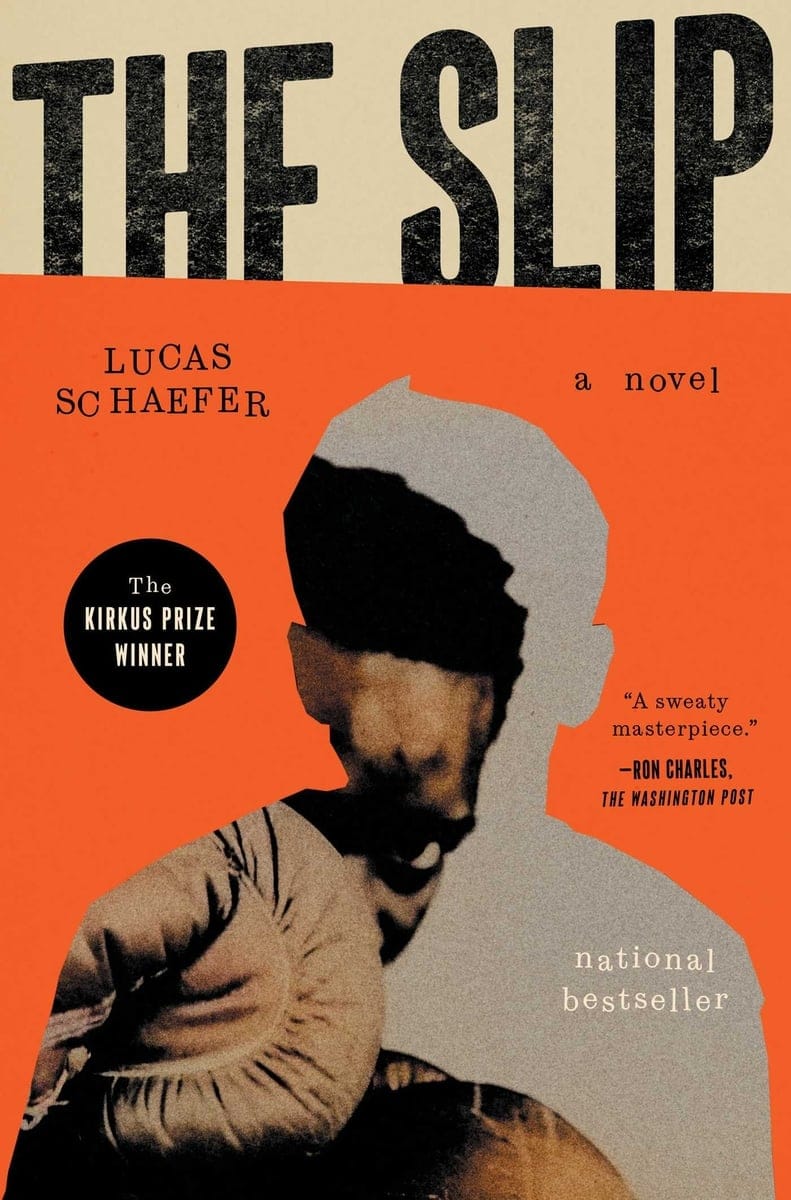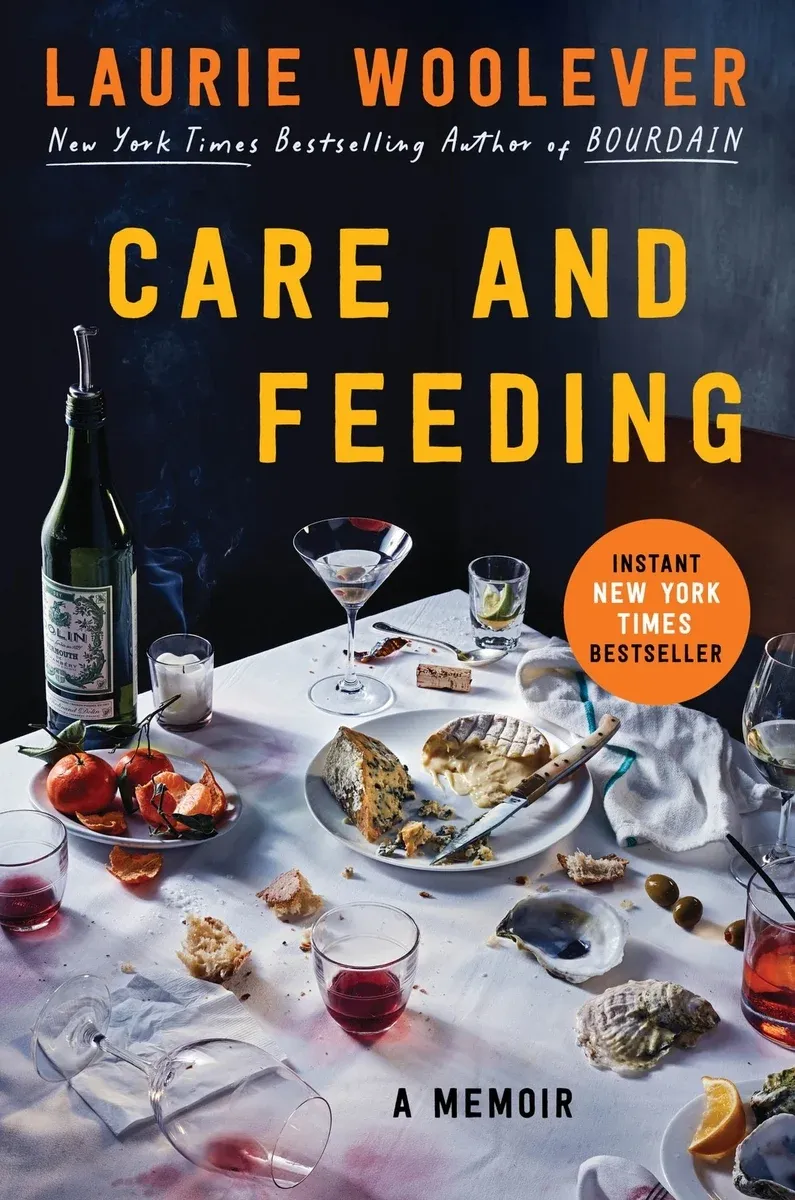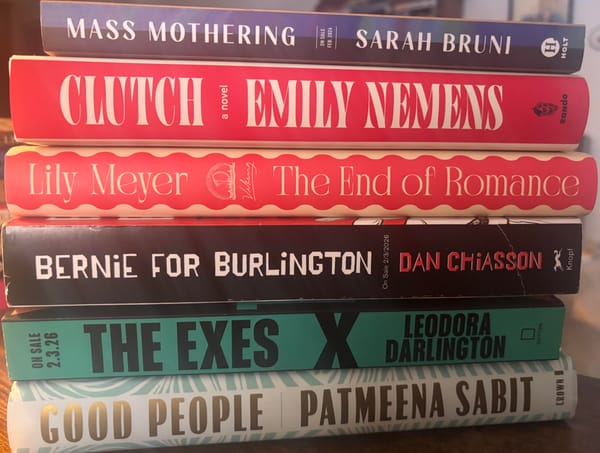The Maris Review, vol 80

It's a short one this week because my flight back to NYC was canceled yesterday. After a night in an airport hotel, I'm just relieved to have something to sound out at all. I am furious that I was inconvenienced so thoroughly and that the Dems ended up caving anyway. I want to send Chuck Schumer my hotel bill. Anyway.
What I read this week

The Slip by Lucas Schaefer
I was saving Lucas Schaefer's debut until it was Texas Book Festival time. The novel is set in Austin, as is the festival, so it felt right. I'm so pleased to tell you that it lives up to the hype, if you're the kind of person who's aware of book hype. Along with Flashlight by Susan Choi, The Slip is proof that a sprawling, multi-perspective Great American novel can still happen in the year 2025.
Much of The Slip is set in the late 1990s, in the early days of the Internet when there was no word yet for "catfishing" and most deception still happened via telephone call. During that brief moment when AOL chat rooms were just starting to take off and *69 was still the most powerful way to verify an identity, it felt as though selfhood could be a little more fluid. The novel contains so many excellent portraits of a wide array of characters, whether over the course of a few paragraphs, a chapter, or the entire length of the book. But at the heart of all of these portraits is the desire of to become a different person, metaphorically or otherwise. I defy any person of any gender to consistently feel at home in one's skin.

Care and Feeding by Laurie Woolever
My conversation partner for my panel at the Texas Book Fest was Laurie Woolever, who I knew online and with whom I have a bunch of mutual friends. It was fun to discover how our books overlapped: we both discuss wanting to be the kind of woman who's able to hang with the dudes, the terrible fat free 90s featuring the potato chips with the diarrhea warning labels, and how our desire to please others sometimes came at great personal detriment.
The personalities featured in Laurie's book are inherently fascinating: she was Mario Batali's assistant in the early aughts, and Anthony Bourdain's assistant up until he died. She writes frankly of how those names opened doors for her, how working on their books allowed for her to do more (excellent, evocative) food writing of her own. So it's no small feat that in the memoir Laurie, with brutal honesty and great wit, allows herself to take up space as the main character. It's not always – or even often – a flattering portrait. Built in to the idea of working in the world of these men and their appetites, and the restaurant world in general, is that overindulgence is part of the job: eating, drinking, drugging, having sex. For years Laurie proved to be as self-destructive as the rest of them, and it was only when her mentors were felled – Batali by MeToo, Bourdain by suicide – that recovery became her only option.
The death of the creative middle class and me
Last week in my column for Lit Hub I wrote about how lonely it is to look at the culture and see the denigration of so many qualities that I always thought were non-negotiable: reading and writing skills, human interaction, and creativity overall. Appreciation and enjoyment of art, curiosity. Et cetera.
Part of this is because AI is shoved down our throats at every opportunity. It's a perfect tool of fascism: you can enter all of your questions about the world into a little search bar controlled by companies that don't give a fuck about knowledge. The way critical thinking has been devalued keeps me up at night.
I have no solutions except that we have to keep creating and to keep supporting others who keep creating.
New releases, 11/11

Girls Play Dead: Acts of Self-Preservation by Jen Percy
Without Consent: A Landmark Trial and the Decades-Long Struggle to Make Spousal Rape a Crime by Sarah Weinman
Carnaval Fever by Yuliana Ortiz Ruano, translated by Madeleine Arenivar
Joke Farming: How to Write Comedy and Other Nonsense by Elliott Kalan
Pandora by Ana Paula Pacheco, translated by Julia Sanches
The Land in Winter by Andrew Miller
The Silver Book by Olivia Laing
Terry Dactyl by Mattilda Bernstein Sycamore
The White Hot by Quiara Alegría Hudes
All We Want Is Everything: How We Dismantle Male Supremacy by Soraya Chemaly
The Magnificent Ruins by Nyantara Roy
Radical Cartography: How Changing Our Maps Can Change Our World by William Rankin





